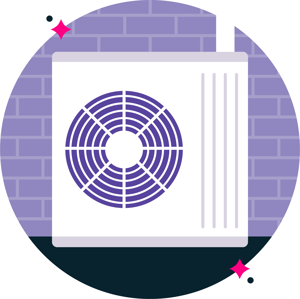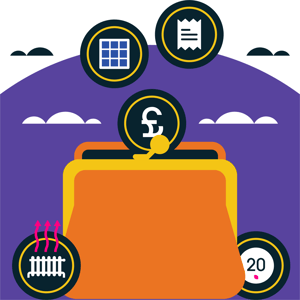Household energy efficiency: incentives and grants to consider
Making your household more energy efficient and green can save you money and reduce your household’s impact on the environment.
But, whether you just intend to beef up your home insulation or are aiming to go all out and install a wind turbine, sometimes the initial investment to become more energy-efficient can be quite steep.
Thankfully, there is some financial help available. Here’s a run-down of the main grants and incentives to consider.
Renewable Heat Incentive
This government scheme will pay you every unit of energy that your home generates using a renewable heating system like a heat pump, wood boiler or solar water heating.
This scheme is intended to encourage uptake of renewable heat systems. It supports the following five technologies:
- Air source heat pumps
- Ground source heat pumps
- Wood boilers
- Wood pellet stoves with back boiler
- Solar water heating
To qualify for these payments – which last for seven years – you need to install a system that meets all the requirements of the scheme; ask your installer if the system is eligible before they start work. Find out more, including how much money you can expect to get from this scheme, here.
Note that the Renewable Heat Incentive is not available in Northern Ireland.

Smart Export Guarantee
The Smart Export Guarantee, or SEG, effectively replaces Feed-in Tariffs (FIT), an old government subsidy scheme, which closed to new entrants from March 2019.
SEG is a way of getting paid for the excess electricity you generate from solar panels, a wind turbine, or other forms of renewable generation.
Under this scheme, from the start of 2020, homes and businesses in Britain installing new solar panels - and other forms of renewable energy generation with a capacity up to 5MW - will receive a payment for exporting electricity to the grid.
This system is intended to give households the best market price for their energy, while providing the grid with clean energy. Ultimately, it’s hoped it will help bring down energy prices as people start using cheaper power generated locally by their neighbours.
Energy Company Obligation (ECO)
The Energy Company Obligation (ECO) supports energy efficiency improvements in low income and vunerable households. Most of the support is focused on cavity wall insulation and loft insulation, but sometimes help is available for replacing an inefficient boiler or other heating system.
ECO works as an obligation placed on the largest energy suppliers to support household install energy improvements - find out if you're eligible here.
For more information about SEG, read our guide.
The Green Deal
The original Green Deal was a government-backed scheme that provided loans to households to finance energy efficient home improvements.
Although the government ditched the scheme, which wasn’t deemed cost-effective for tax-payers, the Green Deal Finance Company still offers loans to help households and landlords invest in renewable energy or energy efficient products. Find out more here.

Support for heating bills
The government provides several forms of support to help people pay their heating bills and stay warm. These aren’t directly related to or dependent on renewable energy use.
Winter fuel payments: a payment of between £100 and £300, tax-free, to help towards winter heating bills. If you are eligible, you usually get a Winter Fuel Payment automatically, for example if you were born before 5 August 1953 and receive the State Pension or another social security benefit.
Warm home discount: a payment of £140 which is reduced from your electricity bill. You may be able to get the discount on your gas bill instead if your supplier provides you with both gas and electricity.
Cold Weather Payment: an automatic payment of £25, for people who claim certain means-tested benefits, if the average temperature in their area drops below zero for seven days in a row.
• • •
With Loop, you can find out how you use electricity, then make smart decisions about using less - click here to find out more. We have a risk-free, no-quibble, money-back guarantee as standard, so what's to lose...apart from some £££ from your bills and some weight from your carbon footprint?







